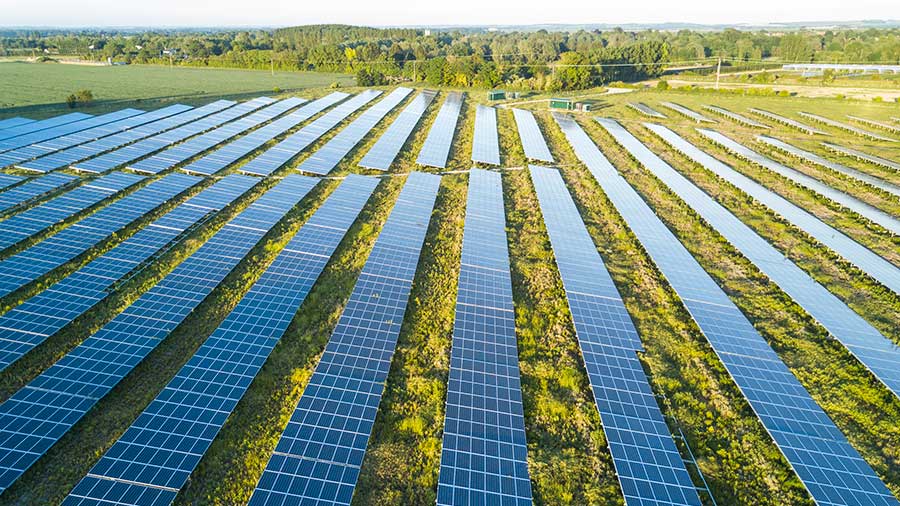Derbyshire farmer pulls out of huge solar farm project
 © AdobeStock/jamesh77
© AdobeStock/jamesh77 A farmer in Derbyshire has withdrawn his support for a huge solar farm after family members voiced opposition to the plans.
The venture would have generated 163mW of electricity a year, enough to power 40,000 homes in the Midlands area. Plans also included a 37.5mW battery storage facility on a separate land area.
Mallaber and Partners, based at Park Farm, Drakelow, had agreed to provide 25% of the 177ha (437-acre) solar farm area. However, after an initial agreement to take part, some of beef and sheep farmer Keith Mallaber’s family raised concerns.
See also: Bovine TB cattle vaccine field trials move to next phase
“After discussions, the family made a joint decision to farm the land instead,” said Mr Mallaber. “We have younger family members coming through and the decision was taken to keep farming the land for the future.”
Mr Mallaber added that he remained fully supportive of solar energy in principle.
“We need energy and it is better that it comes from a clean source like solar,” he said.
Despite the withdrawal, developer Oaklands Farm Solar Limited, said the project remained viable and signalled its intent to progress with the project, but on a much-reduced area.
A spokesman for the company said: “The Oaklands Farm Solar proposals have been reviewed following the removal of a portion of the overall site by the landowners.
“This has resulted in some changes to the plans and site layout, which we are currently finalising. Once we have done this, we will provide a further update on our plans for additional local consultations to commence in February.”
A dedicated website explaining the project aims, stressed the importance of solar energy’s role in meeting the UK’s net-zero ambitions.
It also set out plans to use the grassland beneath the solar panels for sheep grazing and pledged to return the land to agricultural use once the panels were decommissioned.
Semi-industrial
Meanwhile, a separate proposal to build a solar farm in County Durham has met fierce opposition from local village residents.
The 75ha Fishburn Solar Farm is sited 350m from residential properties, according to regional newspaper the Northern Echo.
Villagers have said that far-reaching views would be ruined by 3m-high panels and tranquil open farmland would be turned into a “semi-industrial, utility-grade power complex”.
Residents said although consultation meetings were held last year, the proposals had largely gone under the radar with deadlines for objections closing on 6 February.
MP asks why prime agricultural land is being used

Grey Smith © UK Parliament
An MP, who has been pushing for planning laws on solar farms to change, has questioned why prime agricultural land is being used for energy production.
Greg Smith, Conservative MP for Buckingham, successfully pressed the government to include food security and better protection for farmland in the forthcoming National Planning Policy Framework (NPPF) Bill.
Mr Smith’s amendment to the bill would allow authorities to say no to a solar farm on the grounds of food security.
“With UK self-sufficiency in food at about 60%, I’ve questioned why we are allowing prime agricultural land to be lost,” he said.
“There are so many applications for solar farms, they are becoming ten-a-penny,” Mr Smith added.
To relieve the pressure on farmland, he suggested that solar panels should be sited on the large roof areas of farms and businesses instead.
Although he acknowledged there were difficulties in matching such sites with grid connections, he said it was a policy worth pursuing for the good of national food security.
